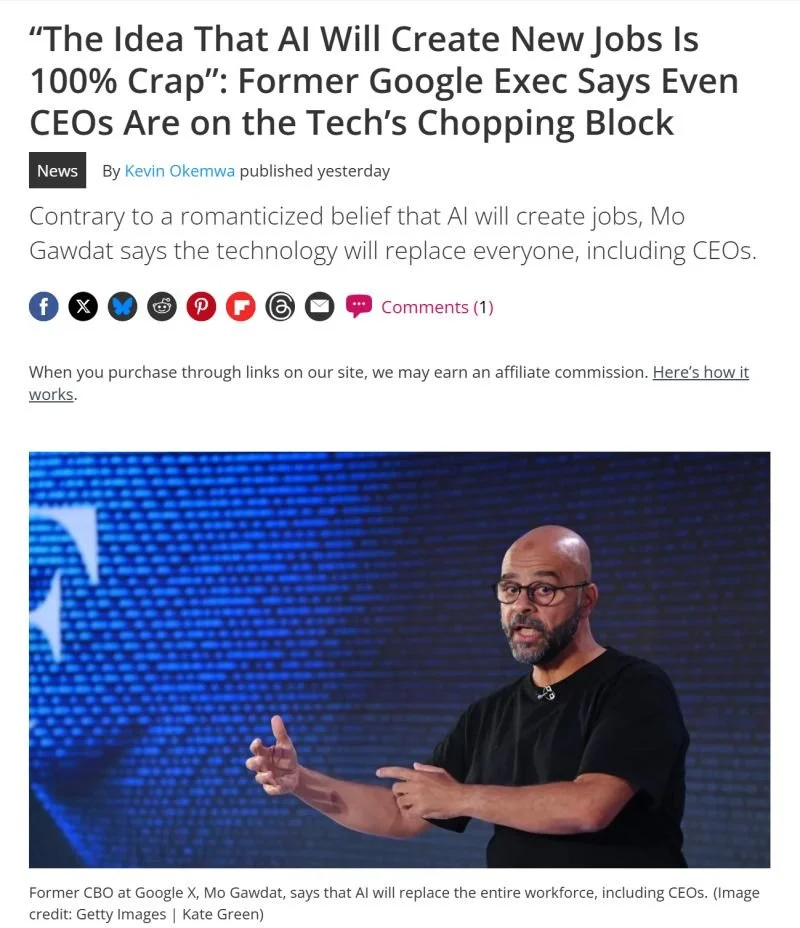From Henry Ford to GPT-5: The Economy Still Runs on Jobs
In the AI-related swirl of the last couple of weeks that has given us GPT-5 along with a number of other announcements, I've seen a lot more articles pop up amplifying the potential for AI-driven job displacement. (The one in the image is from Windows Central and is linked below).
A couple of years ago, I researched and produced a video focused on how AI might impact our work schedules, and the concept I highlighted at that point was the 4-day work week. Believe it or not, our current 5-day work week is a fairly recent construct in the near 300 year history of industrialization, but is also something that economists of the early 20th century thought would be a much more moving target as while productivity would rise, working time would decrease.
The standardization of the 5-day work week can be attributed at least in part to Henry Ford. He was certainly not a man with a wholly positive legacy, but another place where he did innovate was laying some of the foundations that built the American middle class.
Without workers who had the money and time for personal aspirations, Ford had few customers. Creating a new standard where workers who were generating profitable output were given a schedule and salary that allowed them to also be consumers beyond their basic and necessary needs kicked off a century of consumerism and expectation.
When we look at the idea of CEOs embracing AI-based labor contractions, it makes sense at the micro level. If a few thousand jobs vanish at a large tech company, that's a terrible thing for those individuals, but inconsequential in the larger economy. But this changes if suddenly AI can do 10% of jobs, or 20%, or 30%. The IMF suggested 40% of jobs could be exposed to AI changes.
Companies like Microsoft or Google might be able to switch their focus from selling licenses for human use to selling by-consumption AI services. But it's easy to forget that the companies buying Microsoft 365 licenses can only afford them because they have revenue streams from customers too.
The billionaire-class largely only exists because of the consumption of everyone else. Someone like Jeff Bezos fattened his wallet by achieving critical mass before generating a profit. But he only succeeded because consumers wanted to buy a $10.99 book from Amazon rather than same book for $15.99 at Borders. Without those consumers, and their disposable incomes, a story like Amazon's and Jeff's might have turned out quite differently.
The bottom line is that money flows around our economy because people have jobs. Henry Ford understood that customers of discretionary purchases need good jobs to feel assured in that spending. And 100 years later, the rise of AI has not changed that dynamic. ChatGPT is never going to buy a Mustang (but I wouldn't recommend giving Agent Mode your credit card details... just in case).
An AI-powered economy with no jobs is success for no one.
First posted on Linkedin on 08/13/2025 -> View Linkedin Post here

